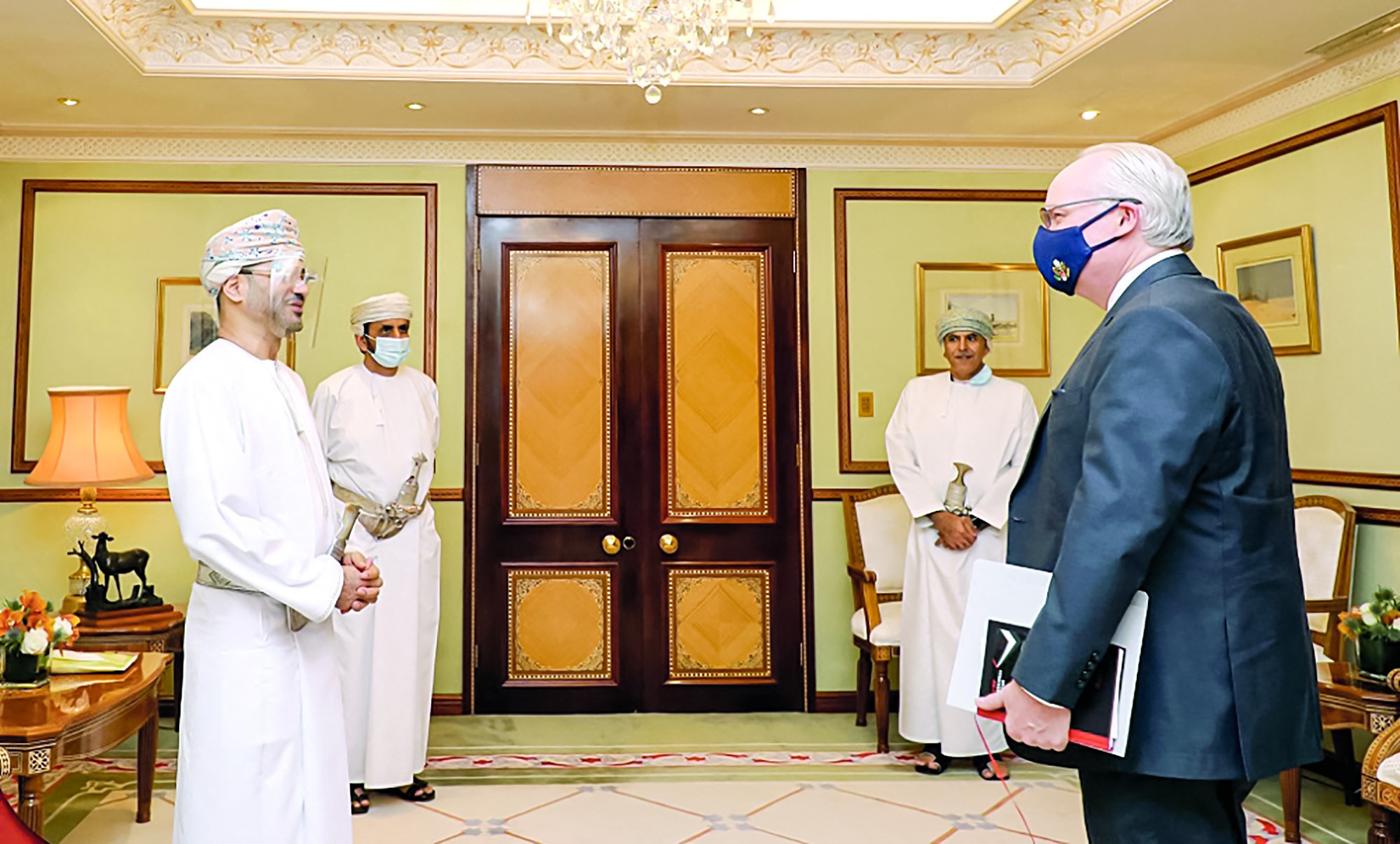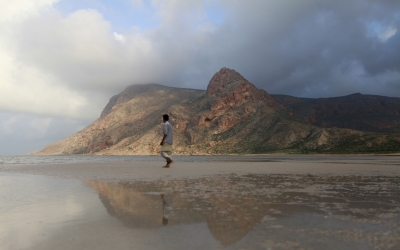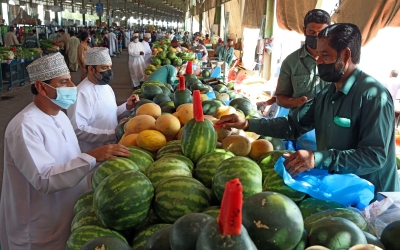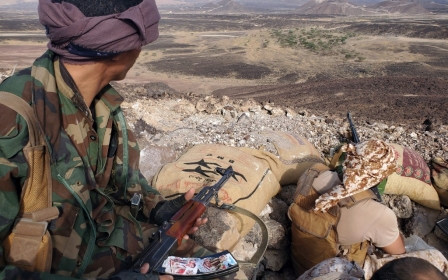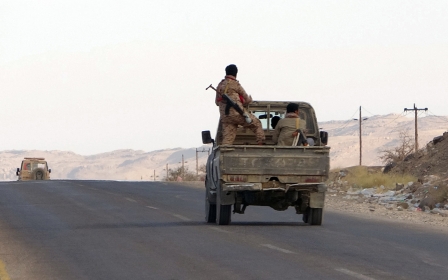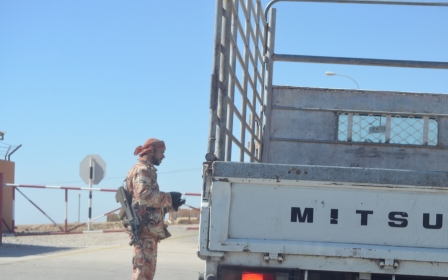Yemen war: Omani mediation and reduced air strikes increase hope in peace talks
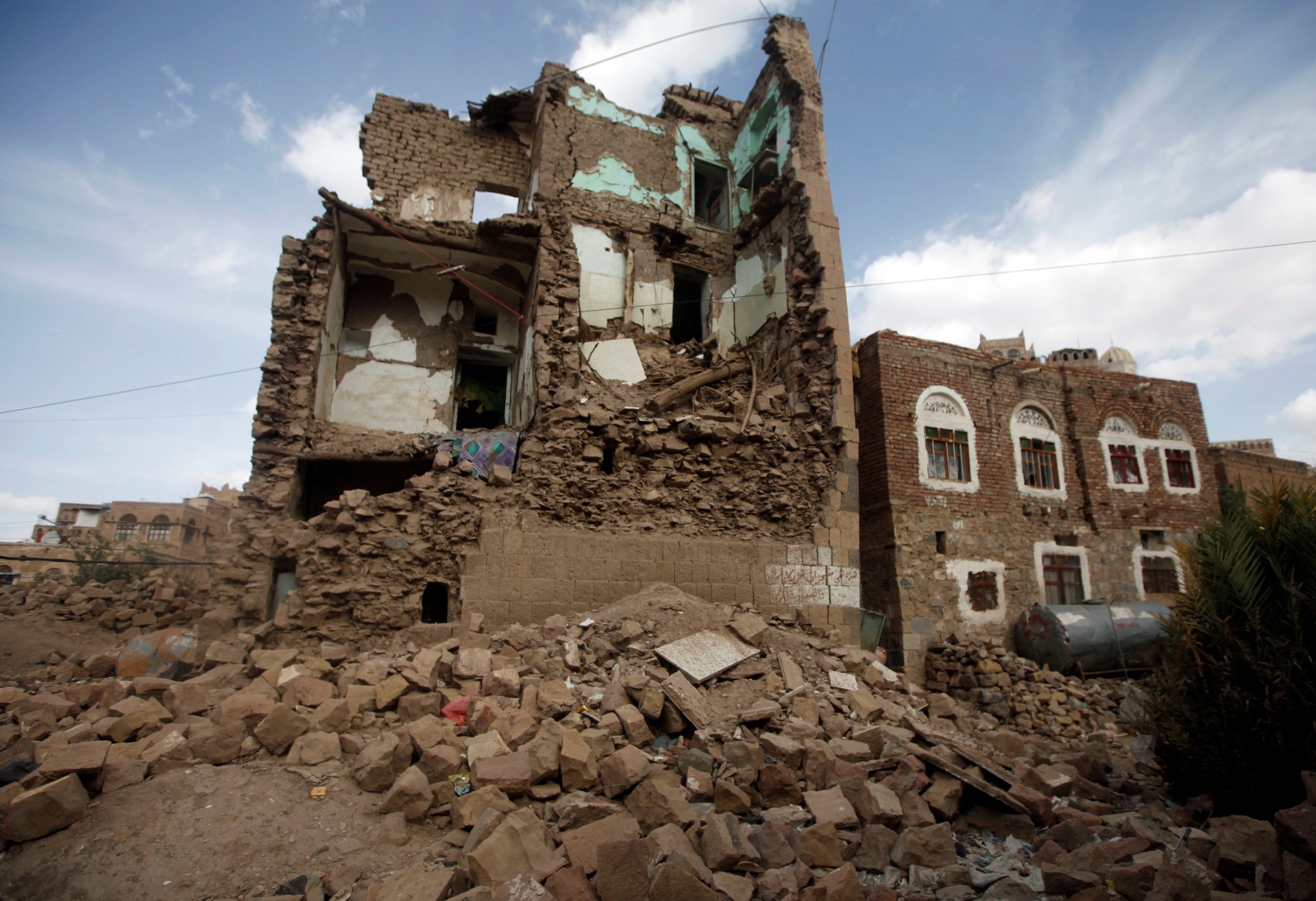
With the Yemeni peace process crawling along, at best, Yemenis’ hopes have been raised again by a visiting delegation from neighbouring Oman, a sultanate renowned for its mediating efforts.
This latest diplomatic push appears to be making headway: on Thursday, the Saudi-led coalition fighting the Houthi movement said it had ceased all air strikes around Sanaa and other cities "with the aim of preparing the political ground for a peace process".
The Omani delegation arrived in Sanaa on Saturday together with Houthi head negotiator Mohammed Abdulsalam and other members of the movement who have been based in Muscat since 2016.
There they met with Houthi leader Abdulmalik al-Houthi, political council chief Mahdi al-Mashat and other leaders, and talks are ongoing.
“They discussed the exchanged messages about the humanitarian issue and other related issues,” Abdulsalam tweeted, welcoming the Omani efforts.
New MEE newsletter: Jerusalem Dispatch
Sign up to get the latest insights and analysis on Israel-Palestine, alongside Turkey Unpacked and other MEE newsletters
Abdulsalam himself hasn’t touched down on Yemeni soil for five years. The Saudi-led coalition battling the Houthis on behalf of the Yemeni government grounded all flights in and out of the Houthi-held capital in August 2016, leaving him stranded.
The delegation flying in over the weekend could only have flown in with coalition approval.
And in another sign the Yemeni government and its backers were serious about the Omani efforts, Foreign Minister Ahmed bin Mubarak met his Omani counterpart on Sunday.
Late last month US representative to Yemen, Tim Lenderking, travelled to Muscat, Saudi Arabia and the UAE for ceasefire talks.
Trusting Oman
A Houthi source in Sanaa told Middle East Eye that the movement trusts Oman and is happy to see Muscat playing an active role in peace efforts.
“It isn’t strange for Oman to take such a role. Oman has been helping Yemenis since the beginning of the aggression [war] in Yemen and it welcomed Yemenis during the most difficult times,” he said.
“Any Omani efforts will be for the interest of Yemenis and not any other side.”
Throughout Yemen’s six-year war, Oman has kept its borders open, providing a lifeline for Yemenis. The conflict has killed more than 230,000 people and left some 80 percent of its population of 30 million reliant on aid.
'Oman has been helping Yemenis since the beginning of the aggression [war] in Yemen and it welcomed Yemenis during the most difficult times'
- Houthi source
Oman has accepted thousands of Yemeni refugees, treated wounded civilians and fighters and been described by UN special envoy Martin Griffiths as playing a “pivotal role” in helping Yemen’s people.
According to the Houthi source, the Houthis’ two main demands are top of the agenda in the talks: the opening of Sanaa airport and lifting of the coalition’s sea blockade.
“We are under siege and the first step should be lifting the siege on Yemenis and then AnsarAllah can discuss any further steps,” he said, using the official name for the Houthi movement.
“We trust Oman. The country knows Yemenis’ suffering very well because many have been forces to flee to Oman by road or bring goods through it instead of Yemeni ports and airports.”
Other details are slim, but the source said Oman and the Houthis were discussing the humanitarian situation as well.
Unlike most of Yemen’s neighbours, Oman did not join the Saudi-led coalition in 2015 and instead has hosted Houthi officials. That makes it a rare Arab government the Iran-backed movement feels it can deal with.
“This round of mediation by the Omani delegation is different from all other efforts as it is done by a country which is near to Yemenis and their suffering,” the source added.
“Even if Oman fails to achieve major developments, it is enough that it tried in an independent way.”
Those feelings are reciprocated in Aden, the southern city where the Yemeni government is based.
An information ministry source told MEE the government is happy with the Omani mediation, and with any party that seeks a peaceful solution.
“The foreign minister visited Oman for the purpose of this new mediation and we know that Oman has a good relationship with the Houthi militias, so we hope that its mediation can achieve something good,” he said.
“We can’t say this mediation will succeed or fail until Oman announces about that, but we are optimistic about it.”
The source noted that any agreement had to address the Houthis' weapons, and that’s a card that the Iranian Revolutionary Guard may be far from happy giving up.
“Any political agreement should talk about the Houthi weapons as they looted the weapons of the country,” he said.
Late intervention
Jamal al-Suhaili, a teacher in southern Taiz province, is keen to see what an intervention by a friendly neighbouring country can achieve.
“Oman didn’t send missiles to Yemen and didn’t kill Yemenis, as some other Gulf countries did. Rather, it opened the borders to Yemenis who want to leave Yemen either for medical treatment or for work,” Suhaili told MEE.
“I have been waiting to hear the news of Omani mediation for six years, as this country doesn’t kill others but always helps.”
Suhaili isn’t the only person getting his hopes up. Several apparently baseless rumours are circulating in Yemen that the Omanis will help reopen Sanaa airport and Hodeidah port on the Red Sea, though the Saudi-led coalition has been intransigent over these points for years.
Sources told Reuters that the Houthis have already begun renovating Sanaa airport with the expectation it could reopen soon.
“Any peace efforts that both sides can agree on will be a great achievement, and there are many that Yemenis need,” Suhaili added. “The most important thing is that we don’t want peace efforts to stop.”
The Omani effort follows the UN-led Stockholm agreement of 2018. Despite not being fully implemented, that pact led to a significant prisoners swap, reuniting many Yemeni families after years.
“Yemenis benefit from any peace agreement, even if it isn’t fully implemented. But at least such agreements make people optimistic about the future, as they hear good news instead of the news about death and destruction,” Suhaili noted.
Middle East Eye delivers independent and unrivalled coverage and analysis of the Middle East, North Africa and beyond. To learn more about republishing this content and the associated fees, please fill out this form. More about MEE can be found here.


